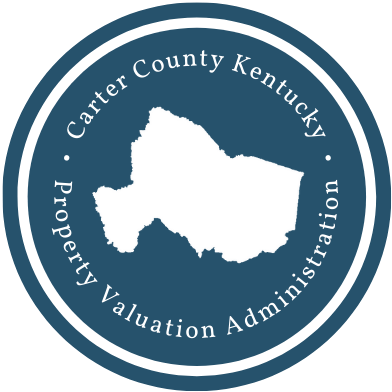Simply search for your property through the website to begin the conference.
At the conference, the PVA, or a designated Deputy, will explain how the new assessment was calculated. All information used in the reassessment should be presented to the property owner. Likewise, the property owner must be prepared to show documentation to support their opinion of the value of their property.
Examples are:
- Interior/exterior photos showing condition of property.
- A recent full appraisal of your property.
- Your homeowner’s or commercial property insurance policy
- Documentation of recent comparable sales (not assessments) that are similar to your property in size, condition, location and characteristics.
- Recent residential sales should be within the last 2 years of the current assessment date.
- Commercial sales should be within the last 5 years of the current assessment date.
- If using comparable sales, they must be arm’s length transactions.
- The PVA accepts only arm’s length transactions of comparable sales.
- Foreclosures, short sales, and family sales are not considered arm’s length sales.
- An Arm’s Length Transaction is described as: a property that is sold at “fair cash value” between a willing Seller and a Buyer after being advertised on the Open Market.
- Property Comparison Worksheets are included with the Conference Form for Residential and Commercial properties.
- Property_Comparison_Residential
- Property_Comparison_Commercial
- Your listing contract if your property is currently for sale
- Estimates of any repairs
- Original construction costs or cost of additions or improvements to your property
- For rental or commercial properties, you should also submit your lease contract or your income and expense statements for the last 3 years. To assist you, an Income and Expense Worksheet is included with the Conference Form. Download additional Expense Worksheets.
- Documentation of land characteristics that support flood plain, environmental contamination, deed restrictions and easements, etc.
If an ONLINE conference is held we ask for supporting documentation to be submitted at the time of submitting the documentation or mailed to our office immediately following submission. We will respond with the results of the conference along with documentation supporting why chose to either adjust the assessment or leave it the same. If an agreement is not reached as the result of your PVA conference, you may appeal to the Local Board of Assessment Appeals.
Filing an Appeal with the Local Board of Assessment Appeals
A written record is maintained by the PVA of each conference held. Upon completion of the conference with the PVA, a copy of the written summary results will be provided to the property owner. This copy is to be retained by the property owner and presented to the County Clerk showing that a conference was held with the PVA. After this presentation, an appeal is filed.
The property owner must obtain and complete an appeals form from the County Clerk’s office in Carter County. The appeals form requires the property owner to provide general information about the property under appeal. Also required is confirmation that a conference was held with the PVA. The property owner must state his or her opinion of the fair cash value of the property and explain why it is too high. After completion, the property owner must then file the appeals form with the County Clerk’s office. The County Clerk’s office will schedule a hearing and notify all property owners when and where their appeal hearing will be held.
The last date to file an appeal is one working day after the close of the inspection period. For instance, if the inspection period closes on the third Monday of May, then all appeals must be filed in the Clerk’s office by the close of business on the third Tuesday in May.
Appearing Before the Local Board of Assessment Appeals
All real property assessment appeals are heard by a three-member panel known as the Local Board of Assessment Appeals. The Board is comprised of three local residents who are knowledgeable about real estate values in Carter County.
The hearings at the local level are informal. Property owners do not have to hire an attorney or professional representative; however, they can have representation if they desire to do so. Any compensated representative of a property owner must be an attorney, a certified real estate appraiser, a Kentucky licensed real estate broker, an employee of the taxpayer, or any other individual possessing a professional appraisal designation recognized by the Revenue Cabinet.
Also, the representative must present written authorization from the property owner which states the professional capacity of the representative and it must also state any personal interests the representative may have in the outcome of the appeal, including any contingency fee arrangements. If the representative is an attorney, any contingency fee DOES NOT HAVE TO BE DISCLOSED.
At the hearing, the PVA will present information in support of the assessment and the property owner must present factual evidence to support his or her claim of value.
A property owner can have a conference with the PVA without providing any documentation but an appeal will be denied if the taxpayer has been asked to present information by the PVA, Revenue Cabinet, or the board, and fails to do so.
A decision will not be made immediately by the board. The property owner will be notified by Certified Mail of the board’s decision. If the property owner is dissatisfied with the local board’s ruling, an appeal can then be filed at the State level with the Kentucky Board of Tax Appeals (KBTA).
